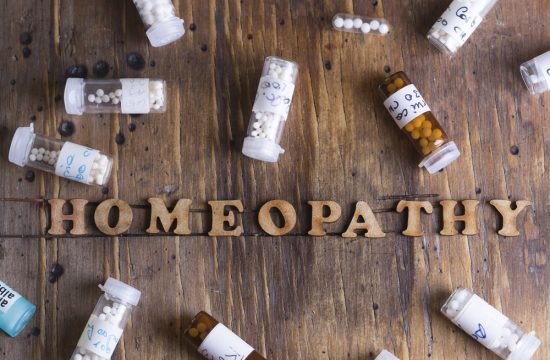Imagine a life where things are moving fast, and you are unable to follow instructions, you feel restless, bored, and cannot stay still. This is how a child suffering from ADHD feels. Attention deficit hyperactivity disorder (ADHD) is one of the most common psychiatric disorders of childhood, affecting 3-5% of children. Kids suffering from ADHD are hyperactive and are unable to regulate their impulses. Does your kid suffer from any of these symptoms? Want to know more about ADHD? This article will help you in understanding the disease and how homeopathy can be of a great help.
What exactly is ADHD?
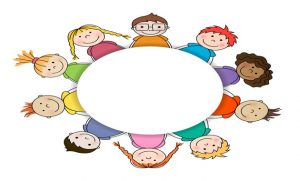
ADHD is a neurodevelopmental disorder in which a kid finds it difficult to focus on something and is easily distracted. A kid suffering from ADHD faces difficulty in monitoring his/her activity and is unable to judge how much activity is suitable for a particular task (hyperactivity) as compared to a kid without ADHD. It is more commonly observed in boys as compared to girls, the ratio being 3:1. ADHD is more commonly associated with co-occurring disorders like anxiety, disruptive mood, and substance abuse.
Based on the symptoms, ADHD is classified into the following three types:
1) Predominantly inattentive (unable to focus)
2) Predominantly Hyperactive-Impulsive type (acts hastily without thinking)
3) Combined type
Worried whether your kid is suffering from ADHD?
Hyperactivity, inattentiveness, and impulsive behavior is a common occurrence in kids, but those with ADHD show this behavior for a longer period of time, and this impairs their ability to function at home, academically, and socially.
Though presentation may vary, symptoms of ADHD fall in the 3 below-mentioned categories in majority of the cases:
1. Inattentive

Some of the common symptoms include:
- Easily distracted
- Makes careless mistakes
- Disorganized
- Difficulty in completing daily tasks
- Loses things
- Daydreams
- Find it difficult in following directions
- Doesn’t pay attention to details
2. Hyperactive

Some of the common symptoms include:
- Talks excessively
- Moves continuously
- Cannot be seated for long
- Fidgets or bounces while sitting
- Is always on the go
3. Impulsive
Some of the common symptoms include:
- Interrupts others
- Cannot wait for their turn
- Blurts out answers
What causes ADHD?
ADHD, like several other medical disorders, is influenced by non-inherited factors, multiple genes, and their interplay. Thus, there is no single cause and not everyone exposed to a risk factor suffers from ADHD. Moreover, the exact cause of ADHD is not completely understood, but genetic linkage can be seen in many cases. It is also seen that certain areas of the brain are comparatively smaller in kids with ADHD, and some abnormal chemical changes in the brain are also noticed in most children as compared to other kids. Some of the causes are explained below:
1) Genetic
The exact cause of hyperactivity syndrome is unknown but has shown to have a genetic linkage. It is seen that kids with ADHD do not produce enough biochemicals in key areas of the brain, which are responsible for organizing behavior and thoughts. A new school of thought believes hyperactivity to be a complex response to cultural, emotional, educational, or social influences.
- If one of the parents has ADHD, chances of the kid suffering from it is 50%.
- In case of an elder sibling, the risk is 30%.
- The risk of a kid suffering from ADHD is 82% in case of an identical twin suffering from it, whereas, it is 38% in case of non-identical twins.
2) Injury to the brain
It is seen to alter attention capacity as well as impulses. Injury to the brain while delivering, especially to the frontal lobe of the brain that is responsible for controlling impulses and emotions, can cause ADHD.
3) Exposure to toxic chemicals
It is seen that the risk of ADHD in higher with a mother who either smoked tobacco or consumed alcohol during pregnancy. Exposure to lead or pesticide can have a role in developing ADHD.
Myths related to the development of ADHD
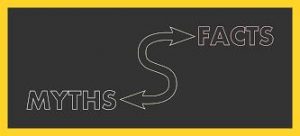
There are several myths regarding the cause of ADHD and some of them are as mentioned below:
i) Hormones: There is no proof that hormones are responsible for ADHD.
ii) Diet: In contrast to the common belief that allergy or sensitivity to certain food substance can cause ADHD, there is no connection seen between the two.
iii) Problems in the family or poor parenting: It has no role to play in ADHD.
iv) Television: No research has proved association of watching TV and ADHD. Also, the incidence is not more as compared to kids who do not watch television.
Diagnosing ADHD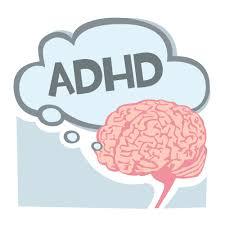
There is no single test for diagnosing ADHD, but there is a strict criteria based on which a child can be diagnosed as suffering from ADHD. A child must have six or more symptoms of inattentiveness or six or more symptoms of impulsiveness and hyperactivity. Also, the following should be present to confirm the diagnosis of ADHD:
- Symptoms should be present continuously for a period of at least 6 months.
- Symptoms should be present before the age of 12 years.
- The kid should show symptoms in at least two different settings, e.g., home and school.
- Behavior should be considered as a problem only if it hampers the child’s ability to function at school, home, or socially.
Treatment options and side-effects
The available treatment modalities help in relieving symptoms and make it easier for the kid to perform daily activities.
1. Therapeutic treatment:
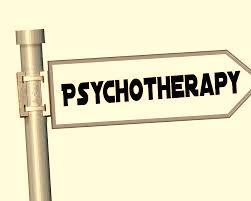
a) Psychotherapy: It helps the kid to open up emotionally, which in turn helps in understanding the problem in detail. It also helps in improving their relationship with parents and peers.
b) Behavior therapy: It typically includes behavior management where a child is rewarded for positive behavior and removal of privilege in case of misbehavior. Parents or caretakers can identify the type of behavior to encourage and praise the child even for slightest improvement.
c) Social skills training: It involves the child in a role play in various situations of daily life and educates them to improve their social behavior. It does so by making the kid suffering from ADHD understand how their behavior affects others.
2. Medications:
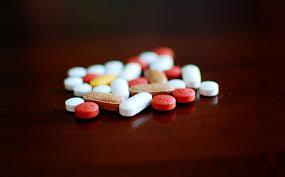
a) Stimulant medications: This group of medicines works by improving the amounts of the brain chemicals norepinephrine and dopamine. These medicines are seen to alter a child’s concentration and thus aid him/her to focus better. Some commonly used medicines are as follows:
I.Methylphenidate-based stimulants
II.Dexmethylphendiate
III.Amphetamine-based stimulants
b) Non-stimulant medications: They are normally indicated in cases where stimulant medicines have failed to work or caused intolerable side-effects. They work by improving the level of norepinephrine that is seen to improve memory and attention. Some common examples are as mentioned below:
I.Atomoxetine
II.Nortriptyline (Antidepressant)
Commonly observed side effects of the above-mentioned drugs:
- Headache
- Nervousness
- Weight loss
- Dryness of mouth
- Irritability
- Allergic reactions
- Hallucinations
- Increased blood pressure
- Seizures
- Suicidal thoughts
Why Homoeopathy?

Though conventional medications are available for controlling ADHD, they come with their own set of side-effects. Because of the same reason, parents are considering another mode of treatment before starting prescription drugs.
Homeopathy is a holistic science and treats each case based on the principle ‘like cures like’ and also on individual symptoms pertaining to both the mind and body. Furthermore, a detailed case is taken wherein the family history, mother’s pregnancy and delivery history, developmental milestones, vaccination, and major life events are enquired. The homeopathic approach to ADHD differs from conventional treatment in the following ways:
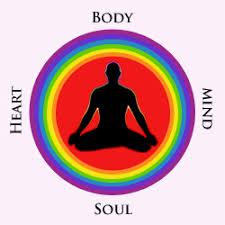
i) Holistic approach: Homeopathy considers holistic treatment. It takes into account the mental, social, emotional, and spiritual factors along with behavior that affects health.
ii) Restores balance naturally: It lays great emphasis on treating the source of an emotional or a psychological problem. The correct homeopathic remedy restores the natural balance of biochemicals in the brain that are responsible for ADHD.
iii) Each child is different: Homeopathy believes in individualization of treatment. It takes into account the distinctive nature and characteristics of each kid. Homeopathy aims to treat using an appropriate remedy that suits one’s personality and remedies are not disease specific. Thus, not all children with ADHD will receive the same treatment.
iv) Action similar to modern medicine: Conventional medicine, methylphenidate, is based on homeopathic tenets “like cures like”. Methylphenidate-based stimulants are prescribed to treat restlessness in kids who are already over stimulated. Stimulants act by stimulating brain areas that are responsible for behavior and activity.
v) No side-effects: Homeopathic medicines restore the body’s balance without any side-effects. Side-effects are a major concern of modern day medications. With homeopathy, you can avoid subjecting your child to the same.
Although homeopathy treatment is based on individualization, the following remedies are commonly indicated in cases of ADHD:
1. Stramonium: It is commonly used in kids who are easily terrified and show outbursts of anger. Commonly observed fears in such kids are of the dark, evil, and abandonment. They become alert to these fears and turn aggressive if tried to control. Other symptoms include fear of water, fear of being alone, fearful dreams of ghosts, and clinginess. It is also useful in cases where the problem has started after a head injury, frightful incidence, or even an emotional trauma.
2. Hyoscyamus Niger: Kids requiring this medicine are impulsive, talk excessively, suspicious, unresponsive to asked questions, jealous of siblings, and fearful. Some of the common fears are of ghosts, water, dogs, dark, and being poisoned. Another commonly observed symptom is inappropriate gestures like dancing/moving around naked, cursing, and smiling or laughing at everything.
3. Cina: It is used to control kids that are irritable, disobedient, and difficult to handle as nothing gratifies them for long. Cina is also helpful in cases where kids are fidgety, cannot bear anyone touching them, scream during sleep due to fearful dreams, and have an insatiable hunger. It is commonly indicated in cases of pinworm and other parasitic infestations in kids.
4. Tarantula Hispanica: It is most commonly indicated in cases of ADHD where restlessness is a predominant symptom. The kid cannot stay quiet in one position for long, jumps and dances from one place to another, constantly moves legs and arms, and is irritated over trivial matters.
5. Tuberculinum: Common symptoms for indication of Tuberculinum are need for freedom and revolt against restriction. There is a desire for constant movement and hence the kid loves traveling, often feels dissatisfied, and complains about a shortage of time for everything. Other common symptoms include fear of dogs and cats, impulsiveness, maliciousness, destructiveness (throw and break things), and prematurity in their behavior and thinking.
6. Arsen Iod (Iodide of Arsenic): This remedy is seen to control emotional outbursts, tantrums, and improves stability. It also helps the child to fight frustration, which can occur while trying to learn new skills.
7. Veratrum Album: It aids improvement of concentration, soothes the nerve, and lessens temper tantrums and irritability. It is given to a child who is scared to be left alone but also refuses to interact with people. Other symptoms include a tendency to tear and throw things, cold sweat on the forehead, and increased thirst for cold water. This remedy is commonly indicated by experts in kids with behavioral disorders.
*Always consult a homeopathic doctor before starting homeopathic treatment or changing any ongoing medications.
Kids with hyperactivity disorder also tend to suffer from mental or physical problems like difficulty in hearing and speech, learning disability, anxiety, etc. that can leave a lifetime negative impact. However, Homeopathy and it’s therapeutic and stimulating action aid to resolve the problem in the most natural way possible. Homeopathic medicines not only help with restlessness but also lower temper tantrums and improve attention span, and thus, academic performance. In a nutshell, homeopathic medicines are easy to take, free from side-effects, and very effective in restoring the biochemical balance of the brain.
What research has to say?
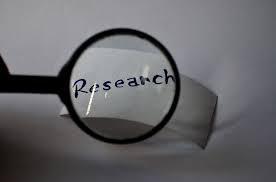
It is seen that kids on homeopathic treatment have at least 70% improvement in grades, attention, self-esteem, and social skills. There is also a decrease in impulsivity, aggressiveness, inappropriate behavior, and restlessness. Significant improvement can be seen within 1-5 weeks of starting a well-chosen homeopathic medicine. Homeopathy can also be used in adjunct to medications and therapeutic treatment.
If your kid has ADHD or anyone close to you is suffering from it and is about to lose hope that things can improve, you should consider homeopathy. Remember each child is unique and hence will react to medicines differently. Allow homeopathic medicines to show their effect and you will be surprised by the results.
Recommended reads:
Winters Are Here! How To Prevent Throat Infections In Children?
Know The Benefits Of This Miracle Juice: ABC Juice
421 total views, 1 views today

